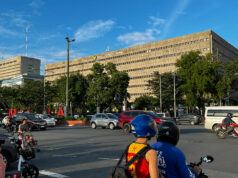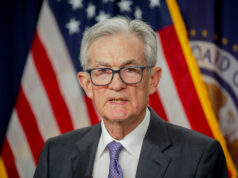Credit raters cautious on political noise
DEBT WATCHERS are cautious over increased political noise due to moves to persecute another of President Rodrigo R. Duterte’s critics and changes at the Supreme Court, even as one said these developments are unlikely to alter its assessment on the country unless they dampen business sentiment.
Sought for comment on Malacañang’s revocation of opposition Senator Antonio F. Trillanes IV’s amnesty, Moody’s senior credit officer Christian de Guzman said political risk will still be a factor in their overall credit assessment for the Philippines.
“To reiterate, political risk is unlikely to alter the sovereign risk profile as long as there are no spillovers to business or consumer sentiment, and there is no decrease in the government’s ability to advance its socioeconomic reform agenda,” Mr. De Guzman told BusinessWorld in an e-mail late Thursday.
“The latest events, such as those related to Sen. Trillanes, do not pose a significant change to that view,” he added.
For its part, Fitch Solutions Macro Research in a separate commentary published on Sept. 5 said there is a “growing chance for Duterte-aligned policy makers to gain control of the Senate in the midterm elections” due to the government’s moves versus Mr. Trillanes and Senator Leila M. de Lima.
The government charged and jailed Ms. De Lima last year over her alleged involvement in the New Bilibid Prison illegal drugs trade when she was still Justice Secretary in the previous administration, although she argued she was only persecuted for being critical of Mr. Duterte’s violent drug war.
Fitch Solutions also said last week that the recent ouster of ex-Supreme Court Chief Justice Ma. Lourdes Sereno “also cast doubts about the independence of the judiciary.”
Ms. Sereno, also a known critic of Mr. Duterte, was ousted in June for failing to fully declare the required statement of assets, liabilities and net worth when she applied for the post.
“President Rodrigo Duterte’s consolidation of power would likely be positive for policy making and would also bode well for his attempt at changing the Constitution, both to introduce federalism and shift the presidential system to a presidential-parliamentary model. However, we see a risk that checks and balances in the country could slip further,” the report read.
The draft Federal constitution is already with Congress, and both houses have indicated their intention to move forward with Charter change.
The change in the government’s structure is among Mr. Duterte’s campaign promises, which seeks to boost regional development by granting them more autonomy. Moody’s and Mr. Duterte’s economic managers have earlier flagged the possibility of a bloated fiscal deficit if fiscal provisions are not clearly laid out.
Moody’s on July 20 flagged the Duterte administration’s “contentious policies on law and order” as well as other “political controversies” as a downside risk on the country’s attractiveness to investors, even as it affirmed the country’s investment-grade rating and its stable outlook over high economic strength from its fiscal health and debt affordability.
In its annual credit analysis for the Philippines published later that month, it rated political risk as “low +,” even as it noted political noise due to issues regarding illegal drugs trade, national security, foreign policy and the alleged suppression of criticism versus the government.
The credit rater said the developments have not led to a significant reduction in the President’s approval ratings, negative spillovers to business and consumer sentiment, and a decrease in the government’s ability to push its socioeconomic reform agenda.
In the same report, however, it said that although the country’s institutional strength is rated “moderate +” due to its effectiveness on monetary and fiscal capacity amid elevated political noise, “contentions regarding the recent ouster of the Supreme Court Justice by her peers foreshadow a further deterioration in the rule of law.”
Fitch Ratings also said last year that political noise failed to dent the country’s growth prospects, while S&P Global Ratings said early into Mr. Duterte’s term that a rating upgrade is unlikely over alleged human rights violations, but eventually upgraded its outlook in April to “positive” from “stable.” — Elijah Joseph C. Tubayan



